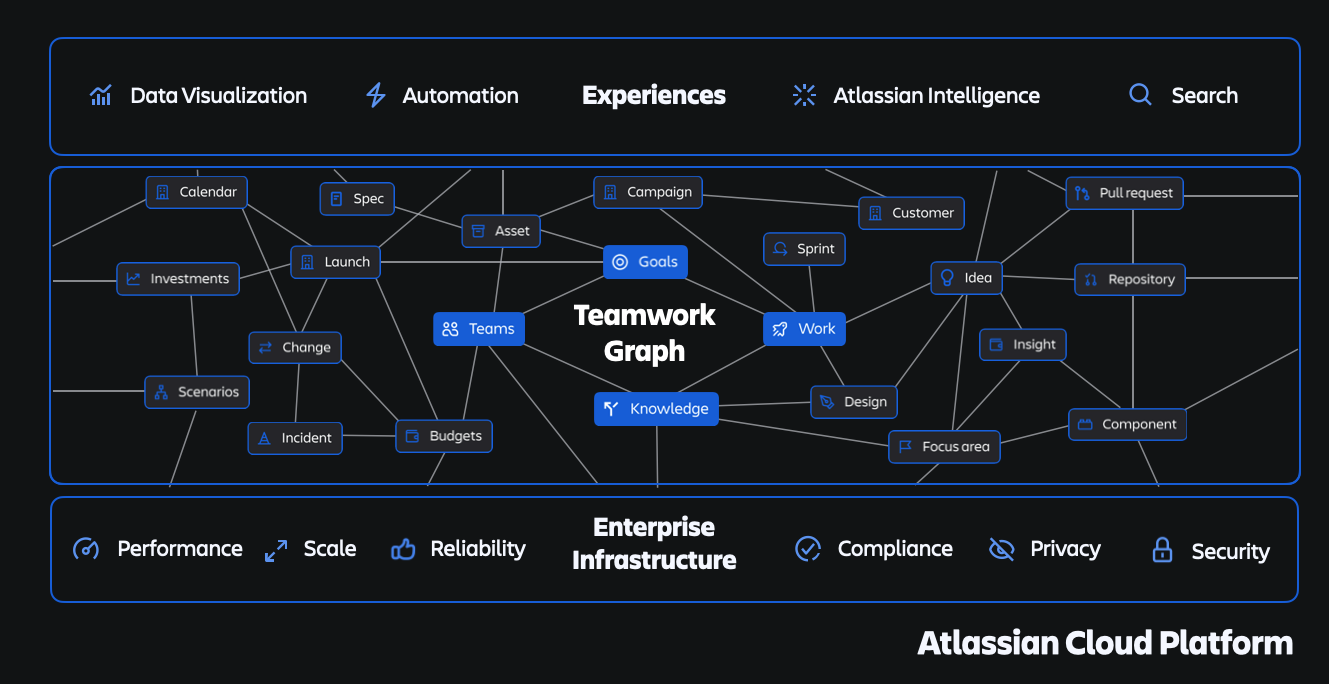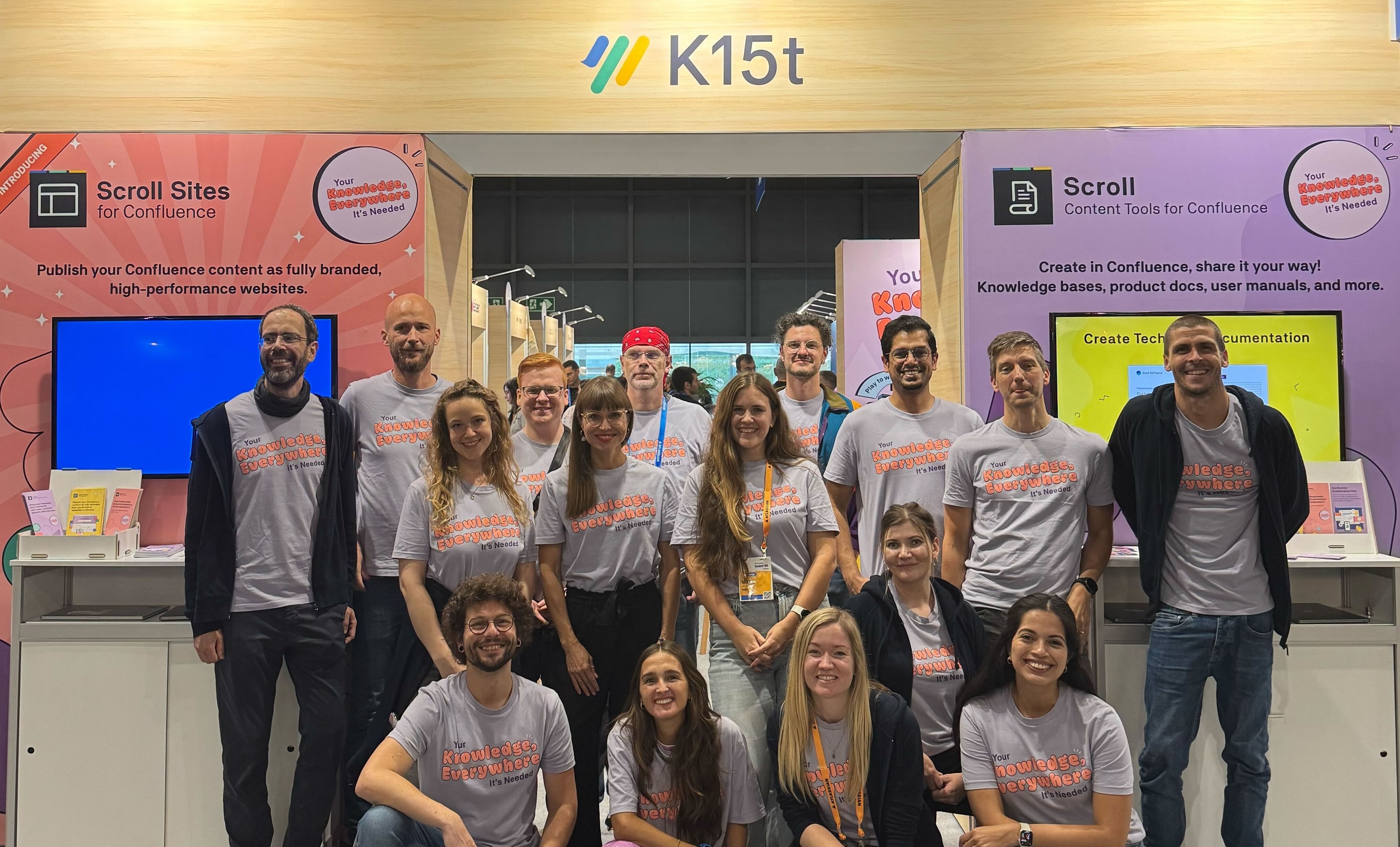We don’t often get the chance to sit down with someone like Atlassian’s Head of Product for Confluence, Jefferson Taylor. So when he took the time to chat with us at Team ’25 Europe, we made the most of it. What followed was an open conversation about how Atlassian is shaping the future of collaboration, and why culture still comes first.
https://youtu.be/S-bWyDMmdCs?si=yr_5mj30kzGVXegb?utm_campaign=team25eu-jefferson-interview-blog-article&utm_source=k15t-website&utm_medium=blog
If you prefer reading to watching a video, or you just want to get a rough overview of the content and of the most interesting moments, here are our key takeaways from the conversation.
Culture Still Eats Strategy for Breakfast
Jefferson didn’t begin with product updates. He began with people.
“AI will not fix bad culture. The more open a culture is, the more intelligent your tools will be, the more effective people are at working together.”
His point was simple. Technology only works if the culture supports openness, trust, and experimentation. Teams that share knowledge freely will get far more out of AI than those that rely on top-down control or keep information to themselves.
It’s a reminder that no tool can replace curiosity or collaboration.
Building for the Teamwork Collection, Not Just Confluence
Confluence doesn’t live on an island anymore. Every new feature is designed to work across the Teamwork Collection, including Confluence, Jira, Loom, and Rovo.
That means what you see in Confluence today, like Create with Rovo, will soon appear in other Atlassian tools. The goal is to give teams a unified experience, no matter where their work happens.

Honest Talk About Trade-Offs
When asked about missing APIs and features that don’t yet connect, Jefferson admitted that some of the integrations, like APIs for Confluence databases, are overdue. But it’s not about neglect. It’s about sequencing and impact.
“All things are a matter of time. The hard part is shipping in the right order to deliver the most value.”
That kind of honesty is refreshing, especially in a world where most product roadmaps are filled with vague promises.
Mobile and Accessibility Take Center Stage
The conversation naturally turned to mobile, and Jefferson’s excitement was easy to see. With Rovo and AI-driven experiences coming to mobile, Atlassian is rethinking how people work and learn when they’re away from their desks.
Features like audio briefings and page narration let users listen to Confluence content as if it were a podcast. It’s ideal for people who want to stay informed without staring at a screen.
Accessibility is also a priority. Individuals with impairments should be able to participate better in everyday life thanks to AI. The idea behind this is that everyone should be able to work without difficulty, regardless of how you want to work: reading, speaking, listening.
Confluence: The Heart of Team Knowledge
Throughout the discussion, Jefferson made one thing clear: Confluence remains at the center of Atlassian’s collaboration story.
He described it as the place where knowledge lives, but also where knowledge transforms.
“Confluence has come a long way from where it was a few years ago. You can collaborate live, publish confidently, and connect ideas across the Teamwork Collection. It’s a different kind of workspace now, more open, more flexible, and more human.”
This evolution reflects how teams actually work today: across multiple tools, in different time zones, and often asynchronously. Confluence is adapting to be the calm center that brings all those moving pieces together.
.png)
AI as a True Teammate
Jefferson believes that within a few years, “humans will never create alone.” AI will act more like a collaborator than a command line. It will suggest edits, summarize ideas, and help shape content instead of simply responding to prompts.
It’s not about replacing people. It’s about working alongside technology that amplifies creativity and reduces the friction between ideas and finished work.
The Human Side of Change
For all the talk about technology, Jefferson kept bringing the discussion back to people. Teams need the freedom to play and sometimes fail before they find new ways to work better together.
Because in the end, progress starts with people.
If you’d like to hear Jefferson’s thoughts in his own words, watch the full interview and see why the future of teamwork feels more human than ever.
